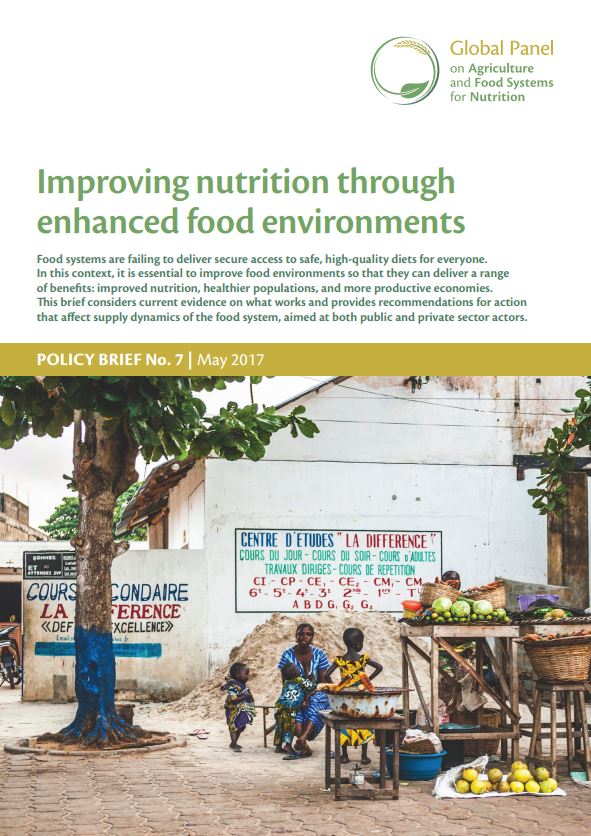Sustainable Food Systems
Improving nutrition through enhanced food environments - Global Panel Policy Brief No. 7

Today’s food systems are failing to drive improvements in nutrition. More than two billion people suffer from a serious lack of vitamins and minerals, and over 200 million children are stunted or wasted. At the same time, nearly two billion people across the world are now overweight or obese, fueling a rise in diet-related non-communicable diseases, such as type 2 diabetes and cardiovascular diseases. Low-quality diets, underpinning all forms of malnutrition, are influenced by the food environment, which consist of the physical, economic, policy and socio-cultural conditions that shape people’s dietary choices and nutritional status.
The Global Panel is calling for a transformation of the food environment in a way that promotes greater diversity, availability, affordability and safety of nutritious foods.
This Brief considers current evidence on what works, and provides recommendations for action that affect supply dynamics of the food system. To allow food environments to be more supportive of high-quality diets, the private sector, civil society and government must work together on key priority areas, including:
- Implement economic measures to reduce the consumption of unhealthy foods through taxes, and to increase the consumption of healthy foods through subsidies.
- Encouraging the marketing and promotion of high quality diets whilst restricting advertising and promotion of unhealthy foods.
- Reformulating, labelling and processing foods in ways that increase their nutritional value and safety.
- Influencing food supply chains to pay more attention to nutritious crops such as fruits and vegetables, pulses, seeds and nuts.
- Providing high-quality foods in schools and workplace schemes.
- Collecting better data on the quality of food environments
Improving nutrition through enhanced food environments - Policy Brief No. 7





